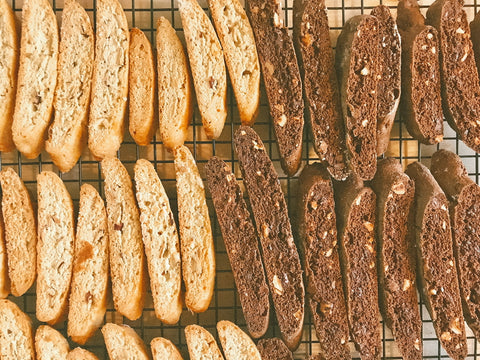
Coming Back Home | An Exercise in Connecting to Our Ancestors
These past few years have asked us to reflect on who we are, what we value most, how we move in the world and in which ways we offer our gifts. A lot of big feelings and revelations in connection to these questions have come to the surface as we’ve distilled all parts of our lives down in search of our true essence. We’ve been in a time of many unknowns and many questions, and perhaps the only way to find our peace in the current of the unknown is to come back home.
With more time at home [literally], I’ve been reflecting on this word and the forms it takes in my own life [literally and figuratively] — my body, my altar spaces, the shelter in which I live. From all the impactful words I’ve heard spoken by others that I’ve scribbled down along the edges of random pages throughout my notebooks, this one reigns:
"Your body is an altar to your ancestors".
I heard this from Dolores Alfieri Taranto on an episode of her podcast, Bella Figura, in conversation with MaryBeth Bonfiglio. Other variations of this have surely been spoken before and the concept itself is not new, however these words landed on my heart in a new way. Then follow that one up with,
"To love your body is to love your ancestors."
spoken by Camille Langston in a presentation on ancestral altar building.
My body is an altar...To love myself is to express love to those who came before me... These potent words rang a bell inside of me, turned a light on, opened a door, and both expanded and affirmed my exploration into the body as an altar as a home; a concept that I visualize as an infinite circle of each of these three words flowing into the next.
So the next question is, considering home as our body, as our altar spaces, as the dwellings in which we live, how do we tend to these home spaces? Because how we tend to them is how we love ourselves, which in result, is how we love our ancestors.
Who’s calling?
Think about your ancestors — your grandparents, great-grandparents, aunts, uncles... Who calls to you most? What do you know about them? What did they do? Where were they from? What was life like where they lived when they were alive? What did they eat? What did they love?
Maybe you had the privilege of knowing them while they were living, maybe you know them through the stories that are shared about them, maybe you know their names, maybe you don’t. Maybe you don’t know anything about them at all. It’s all okay.
Your body is an altar to your ancestors, remember? If you have a body, you can know your ancestors. You can know them by feeling them. You can feel them by building a relationship with your intuitive self. Allow that to guide you in the practice below if you are without the details.

[my bisnonna/great-grandmother + trisnonna/great-great grandmother at the kitchen table processing mushrooms]
A simply practice with great reward
Do something that your ancestor[s] did or experience something from their culture. Cook a family recipe. Listen to their favorite music. Explore their favorite artist in a book or on the internet. Buy their favorite flower for your kitchen table. Whatever it is you choose, let it bring you joy.


The point of this practice is to enjoy something that your ancestors also enjoyed, to relish in a simple pleasure similar to one that they may have also experienced. In these moments, I like to allow my intuition to lead, imagining this is them working through me. This is not an elaborate ritual, in fact, it’s quite simple. For me, this is my natural way of practicing magic and of communing with the spirit realm. This is where we make connections, in the cross sections of our commonalities; this is how we begin to know something more intimately; this is when something feels like home. And when we know where home is, we know where to return to when the world gets stormy.
An important final note —I don’t believe that one needs to know the names or faces of their people in order to feel them and connect with them. You are the house of your ancestors. By simply caring for your self, by experiencing joy, you are also offering that to your ancestors.
note: a recent listen to another podcast interview has inspired me to plant an ancestral garden, meaning a curation of edibles and ornamentals with roots to where one’s ancestors lived and that they likely also cultivated. [of course it’s important to also be aware of invasive species.] for my fellow friends of Italian descent, check out Seeds From Italy and The Italian Garden Project. If anyone else has resources to share here with us in relation to your personal lineage, please leave a comment below. And if you feel inspired to share a photo of yourself doing something your ancestors did, tag @hina.luna on Instagram or do it the old fashioned way and email me [hellohinaluna@gmail.com]!

[One spring in our garden that was abundant with a small Italian variety of tomatoes - Grappoli d'Inverno. While not specific to my ancestors' regions of Italy, they felt like a small connection point to their homeland.]

[This photograph of my great-grandparents home lives on my ancestral altar. Although the house is no longer in the family, it is a place I've occasionally still visited in my dreams.]
